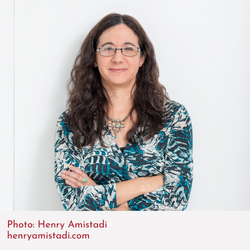By Jennifer Meeropol, RFC Executive Director
In 2017 the RFC embarked on what became a deeply engaging 18+ month strategic planning process. It began with a survey of current and former Board, staff and consultants and resulted in a plan that we committed to using in our daily work to help guide key decisions. As part of the process, we revisited our founding documents, recommitted to our core mission and values, drafted a vision statement, identified key priorities and crafted strategies and targets to guide and evaluate our programming for the next few years. The final version of the plan (available here on our website) was approved by the Board in January 2019 for 2019-2023.
Our strategic plan has remained an active, living document over the past five years. The staff has used it to set annual goals and evaluate the RFC’s work, which they have reported on to the Board every year. Our plan had even laid out preemptive reactions to hypothetical financial scenarios, and while we did not predict the COVID pandemic and seismic shift in our lives and work that resulted from the drastic changes implemented in the spring of 2020, we did look to those scenarios and found them enormously helpful in weathering that storm.
Last year, the staff and Board began to discuss how to create a new version for the next five years. While we agreed that the core goals and priorities of the plan remained current and relevant for our work, there are a number of issues to consider that feel important as we look to the next five years and beyond. As we draft our new plan, with a goal of completing it for Board approval at our June 2024 meeting, here are some of the questions and ideas we’re grappling with:
- How do we balance the incredible increase in demand for our support with our financial constraints? Can/should we keep increasing our granting budget to meet the need and, if we do, how do we increase our resources to meet this need?
- How do we gather, safely and comfortably, so that we can bring our supporters together and build community, as well as support the RFC’s grantees in connecting with one another?
- When someone receives their first grant and becomes part of the “RFC Family,” what does that mean for them beyond receiving grant funds? Could we create an RFC alumni network/connection for former beneficiaries who want to stay connected to the RFC and/or each other?
- How might the relaunch of the Exonerate Ethel campaign and/or our FOIA efforts allow us to connect with current and potential supporters?
- What type of events (in person or virtual) would be most engaging for current and potential new donors?
- How can Board and staff connect with peers at similar institutions to build connections, collaborate on programming and share lessons or strategies?
As we wrestle with these and other issues we’d love to hear from you. If you have suggestions to share, please email us at info@rfc.org (subject line: Strategic Planning) and help us plan for the next five years and beyond. Thank you!

